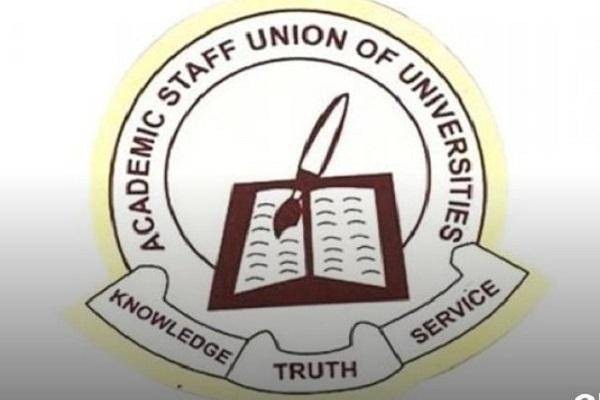
Nigeria has 78 public and 51 private universities. A strike by lecturers has paralysed public institutions for the past three months, while teaching at private universities has continued. As a result, there has been a rush by parents with financial muscle to register their children in private universities, whose proprietors are laughing all the way to the bank.
Other factors have contributed to the financial fortunes of private tertiary institutions. They include weakening of the local currency, the Naira, against the American dollar, increasing the costs of studying abroad; visa restrictions on Nigerian students by Western countries; and instability in the Middle East, preventing students from studying there in Islamic universities.
However, students in the applied sciences – especially medicine, dentistry and engineering – have to wait for public universities to reopen, because these capital-intensive courses are not offered in private institutions.
The private sector
While public universities have remained closed at the start of the academic year, private institutions have opened their doors and have reported many more students – including refugees from the public sector.
Parents have gone to the office of the Joint Admissions Matriculation Board in the federal capital Abuja, to change the admission status of their children from public to private universities.
“The current industrial strike in public universities has thrown up a major contradiction in Nigeria’s political landscape,” said a leader of the Academic Staff Union of Universities, who did not want to be named so as not to jeopardise ongoing pay negotiations.
Most of the children of the Nigerian elite were in private universities. “Thus they are not bothered if public universities are shut down. It is clear that the proprietors of these private universities made up their mind not to allow academic staff to join unions. What a pity!”
According to reliable sources, the income of parents determines the choice of private university, as does location and religious affiliation. Some of the universities are fashioned after well-known tertiary institutions in Western Europe and the Middle East.
They are well oiled by private funds, well equipped and their Nigerian and foreign staff are well salaried thanks to hefty fees paid by parents who are members of the well-remunerated political class. The students are primarily children of top military officers, top civil servants, traditional rulers, private sector executives and some lecturers from public universities.
Among these private institutions – to name but a few – are the American University of Nigeria, founded by former vice-president, Abubakar Atiku; Bells University of Technology, Ota in Ogun State, funded by former president Olusegun Obasanjo; Baze University in Abuja, founded by Senator Datti Baba-Ahmed; Veritas University, Abuja, founded by the Catholic Bishops Conference of Nigeria; Covenant University, founded by the Living Faith Church; and the Nigerian Turkish Nile University, which is owned by Turkish and Nigerian private investors.
Private universities market themselves as assisting students to create networks of international friends who will be useful to them in future jobs in a globalised world.
Push factors no more
Most members of the establishment in northern Nigeria are no longer willing to send their children to study in Western Europe, because of visa restrictions that have followed the suspected involvement of some Nigerian students abroad in terrorism.
Images of violence and destruction in the Middle East – especially in Egypt, Libya, Syria and Sudan – have also persuaded Islamic parents to send their children to private Muslim universities in Nigeria.
Universities in the Middle East were once the preferred destinations for Nigerian students studying Arabic and Islam. This is no more the case.
Nigerian embassies in the Middle East have advised prospective students to stay at home or go to Malaysia to study. “The political situation in the Middle East is volatile. We cannot guarantee the safety of our students,” declared a senior diplomat in the foreign affairs ministry in Abuja, who did not want to be named.
Ibrahim Mikael, a Muslim cleric in Lagos, said, “Authorities of the Islamic-based universities [in Nigeria] have approached Muslim clerics to make use of the Friday prayers, appealing to parents to send their kids to these universities.”
Some challenges
Most have recorded soaring enrolments of new students. But they do have challenges.
For example, the American University of Nigeria is in a region that experiences occasional attacks by Boko Haram, the Muslim fundamentalist group fighting for the imposition of sharia law in northern Nigeria.
Nigerian President Goodluck Jonathan, with approval from parliament, has imposed a state of emergency in the areas where the university is situated – an action criticised by AUN Vice-chancellor Margie Ensign, who has said Yola is calm and peaceful.
Adamawa State Governor Murtala Nyako, however, pointed out recently that the security situation had precipitated the “massive” departure of foreigners from Yola – an obvious reference to foreign students and staff of AUN.
Ensign debunked this claim, saying Nyako’s comments were “completely inaccurate. Not only are we running our regular summer school with very high attendance, but no faculty member or staff has left AUN because of the ‘state of emergency’.
“In fact, over 4,000 people – including the ambassadors of the United States, the European Union, Rwanda and Ireland – attended our fifth commencement ceremony on 11 May, three days before the state of emergency was announced. We are also continuing our important development work in the community in literacy, IT and with the Adamawa Peacemakers Initiative that the University founded in January 2012.”
What about public university students?
While many of rich parents are willing to send their children to private universities, students who had been admitted to study medicine, dentistry and pharmacy have mostly decided to wait until public universities open.
Private universities do not currently have the infrastructure or manpower to offer these courses.
“I have been given admission to a public university,” said Agnes Okon, who has been admitted to read medicine. “I will wait until the strike is over. Government should make more concessions so that university teachers can go back to the campuses. I am tired of staying at home.”

